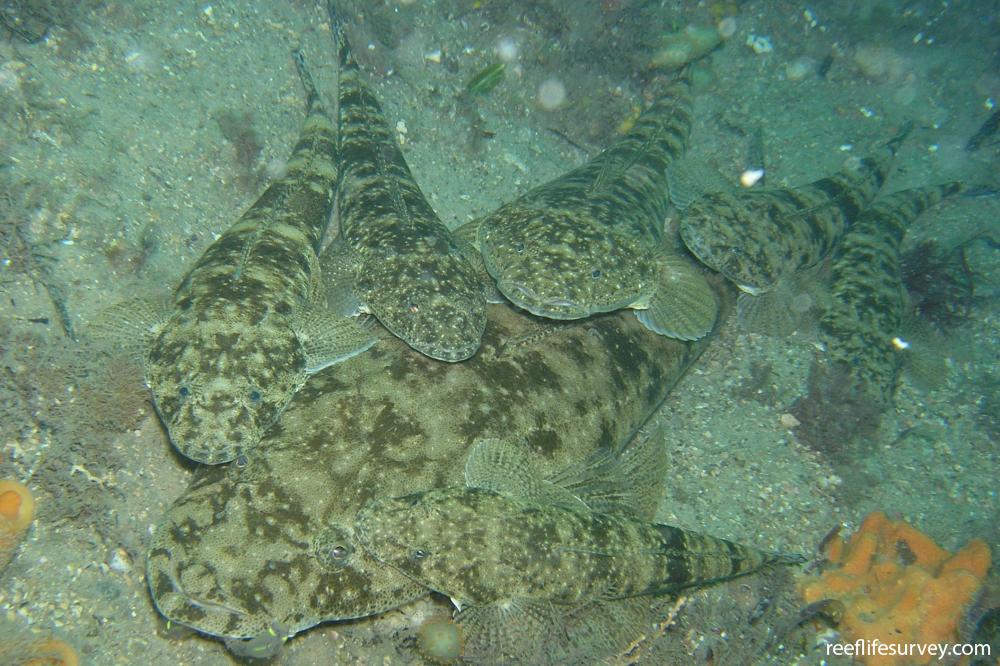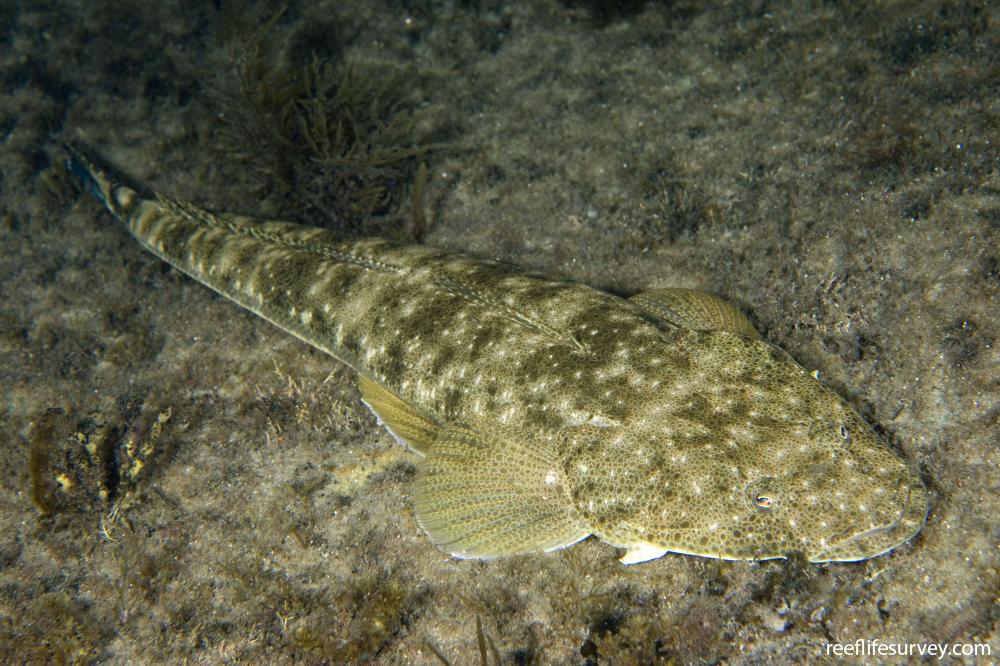Platycephalus fuscus
Dusky Flathead | Black Flathead | Estuary Flathead | Mud Flathead | River FlatheadSimilar Species
Same Genus
Distribution
Temperate Australasia, Tropical Indo-Pacific
Description
Rays of pectoral fin with rows of fine brown spots, head covered in fine brown spots, body and tail behind head mottled with dark blotches with one distinct dark band across back starting about 2/3 of the length along the body. The largest of all flathead species, growing to more than 15 kg weight. Rare north of Brisbane. Endemic to Australia.
Information
Max Size: 120 cm
Sea Temperature Range: 16.2-24.6°C
Depth: 0-25m
Habitat Generalization Index: N/A
Also referred to as the SGI (Species Generalisation Index), this describes the habitat niche breadth of the species. Species with values less than 15 are found in a relatively narrow range of reef habitat types (specialists), while those over 25 may be found on most hard substrates within their range (generalists). Learn more here.
Conservation and Rarity
IUCN Status: Not Evaluated
Occurrence: Infrequent (8.2% of sites)
Occurrence describes how often the species is found on surveys within its distribution. It is calculated as the % of reef sites surveyed by RLS divers across all the ecoregions in which the species has been observed
Abundance: Solitary (1 per transect)
Abundance is calculated as the average number of individuals recorded per RLS transect, where present.
Edit by: GJ Edgar. 2008. Australian Marine Life. New Holland, Sydney

















